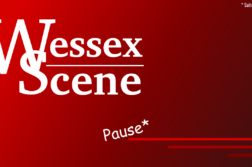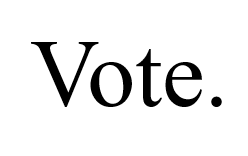The re-election of Alexander Lukashenko as President of Belarus on the 9th of August has sparked protests against his rule. But who is he, and why should the election and the following protests matter to us in the West?
You may be forgiven for not knowing much about Belarus or its leader Alexander Lukashenko, who have only recently been brought to the attention of the West shortly before and after the presidential elections on the 9th of August. However, they are incredibly influential in European and Russian politics. Belarus has been commonly known as ‘Europe’s Last Dictatorship’, with Lukashenko having served as the country’s first and only President since its independence from the Soviet Union in 1994.
Before becoming President, Lukashenko served as Deputy to the Supreme Council of the Republic of Belarus, and was the only Deputy to vote against the dissolution of the Soviet Union in 1991. He has attempted to maintain this close relationship with Russia ever since, through the Union State, a supranational union (similar to the EU), between Belarus and Russia, of which he sits as Chairman of the Supreme State Council. The Union State does more than just allow the free flow of citizens and labour between the countries, but is also a military alliance, for which an attack on one member is an attack on another. This builds upon other supranational organisations such as the Commonwealth of Independent States (CIS).
Ultimately, this relationship allows Russia to station troops within their borders, and forms one end of the Suwalki Gap, the other being the Russian exclave Kaliningrad. The Suwalki Gap is 40 miles wide, and consists of a flat stretch of land that if captured, would isolate Latvia, Lithuania and Estonia from the rest of NATO and the EU. The internal political direction of Belarus is therefore of great strategic importance to Europe and the NATO alliance, as well as to Russia and its allies.
So what has actually happened? Lukashenko apparently won the election with 80.1% of the vote, a small decline from 83.5% in the 2015 elections. His main rival was Svetlana Tikhanovskaya, an English teacher who gained only 10.12% according to the Central Election Commission. She instead claimed to have won 60-70%. Tikhanovskaya ran for President after her husband Siarhei Tsikhanouski was arrested after declaring his intention to run. Tikhanovskaya has since gone into exile in Lithuania.
The elections did not go without controversy, with questions being raised about the legitimacy of the results. On the 11th, the EU called the elections ‘neither free nor fair‘, and organisations such as the OSCE’s Office for Democratic Institutions and Human Rights (ODIHR), were prevented from observing the elections. Belarus is supposed to be a participating member of the OSCE. Internet service had also been disrupted, with a significant number of outages reported as soon as polls opened. Even before the election, concerns were raised as the government cracked down. Tikhanovskaya’s campaign manager was arrested just before election day, and protests in the run up saw protestors, journalists and bystanders detained. Since the election a further 6700 people have been detained.
There have been reports of widespread torture, the use of live ammunition against protestors, and foreign journalists attacked by police. Escalating the crackdown, Lukashenko ordered police to put down all protests in the capital, Minsk, and for the intelligence services to find the organisers, on the 19th of August. This follows continued protests, as well as strikes, with 15,000 from a tractor factory in Minsk joining the protests on the 18th. This is on top of another 30 factories that are believed to be partly, or completely shut.
Whilst the West has largely condemned the events in Belarus, Russia and its allies have stood by Lukashenko. The State-run news agency Belta reported that the CIS found that the ‘election was open, competitive, and ensured the free expression of the will of citizens of Belarus’. Lukashenko also sought the support of Russian President Vladimir Putin, arguing that protests threatened his regime, and would only spread to Russia. Belta later cited Lukashenko saying that ‘at the first request, Russia will provide comprehensive assistance to ensure the security of Belarus in the event of external military threats‘.
The reference to ‘external military threats‘ is of some significance, given Lukashenko’s previous remarks about his opposition. Their supporters have been described as ‘sheep‘ controlled from abroad, while claiming Tikhanovskaya is being manipulated by foreign ‘puppet masters‘. Tikhanovskaya, while in exile in Lithuania, called on Belarusian mayors to organise peaceful protests. More recently, Lukashenko has ordered that the borders be tightened to prevent the entry of ‘fighters and arms‘. Talks with other leaders have not been as successful, with Lukashenko refusing phone calls from the German Chancellor, Angela Merkel. Germany had been offering to mediate the situation.
The widespread protests and international division over the elections highlight their significance, not only to Belarusians, but to the world. The political landscape within Belarus has the potential to shape a new ‘East versus West’ power dynamic. As the conflict in Ukraine has slowed down under a ceasefire agreed by Ukraine’s President Zelensky and Russia’s Putin in December, Belarus may become the new focus.



